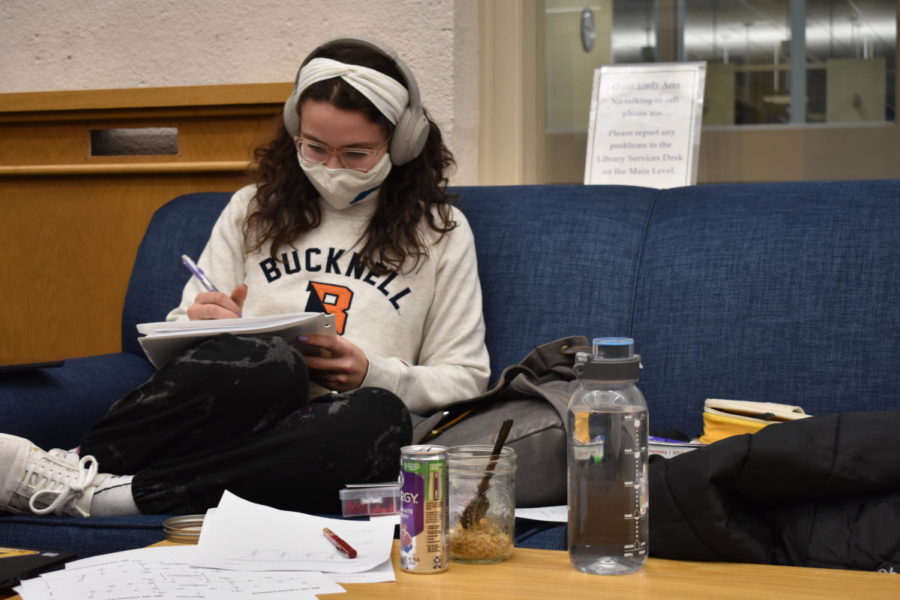University changes COVID protocol, lacks means to enforce it
September 30, 2022
The COVID pandemic, which started almost three years ago, brought major changes to the University and the world.
After sending students home for the spring semester of 2020, Bucknell University administrators made several policies and precautions to make it possible to bring students back to school while lowering risk of infection. Some of these policies include masking, social distancing and testing.
As the pandemic continues many of the policies on campus have changed or been eliminated entirely, and there is no one overseeing whether students follow the recommendations.
A major change made by Bucknell is which students qualify for isolation housing.
This year isolation is only offered to students in extraordinary circumstances. If the student who tested positive has a roommate who is at high risk for severe COVID, they can qualify for isolation housing.
Catherine O’Neil, the director of Bucknell Student Health, said there are measures that students can take to decrease the risk of contracting the disease when a student needs to isolate, but does not meet the criteria for isolation housing.
“They include wearing a mask when in their room, open windows to increase air circulation if possible, sleep with their head facing the opposite direction of the sick roommate, clean their room surfaces frequently, wash their hands frequently and avoid touching their face, get regular sleep and eat healthy, well balanced meals,” O’Neill said.
In past years, anyone at Bucknell who tested positive was sent to isolation housing, a private room in a local hotel where prepared meals were delivered to the student to prevent them from leaving their rooms. The cost of this was paid for entirely by the University.
Now, students who test positive for the virus must remain in their rooms and are only permitted to leave their space to use the bathroom and to collect meals.
Individuals who are COVID-positive, and not placed in housing, will continue to use the communal bathrooms, the same ones as COVID-negative students.
These students are recommended to wear a mask at all times. However, the CDC has written on their website that masks are not effective when wet, so they should not be worn in the shower.
Due to HIPPA laws, the University is not authorized to share with other students whether an individual has COVID, including roommates. Unless an individual decides to tell their hall, the students in that hall will have no way of knowing if a student showering in the same bathroom as them without a mask has COVID or not.
Bucknell has no official staff or position monitoring whether students follow the precautions that the administration recommends to infected students.
Meal deliveries have also been terminated for positive students.
The University started a program called “Bison Buddies” for students who are unable to or don’t feel comfortable going to dining locations, while positive for COVID or the Flu, to replace the delivery service.
This program allows students to bring another student’s ID card to dining locations and purchase food on their behalf and is the only option for students who do not have the means to pick up food on their own. Students must find another willing student on their own.
Another precaution that was done away with this semester was the COVID Dashboard, which showed accurate data of how many positive cases there were on campus among students, staff and faculty, how many students were in isolation housing and the number of tests administered per day.
Data for past weeks and months was also available on the webpage.
With testing no longer a requirement by the University, and most individuals choosing to test at home, it makes it impossible to collect accurate data, especially because not all members of the campus community report positive cases to Student Health. Bucknell students are required to have been fully vaccinated to attend the University.
“We have discontinued the dashboard this semester because it would be inaccurate and not serve the purpose it was built to do,” O’Neil said.
Lehigh University, a private institution located in Bethlehem with roughly 7,200 students, still maintains their COVID Dashboard.
Lehigh follows a similar isolation protocol, offering “extremely limited” housing for students in extreme circumstances, according to their website.
The CDC publishes recommendations for isolation and preventing the spread of COVID, which is available on the agency’s website.






















